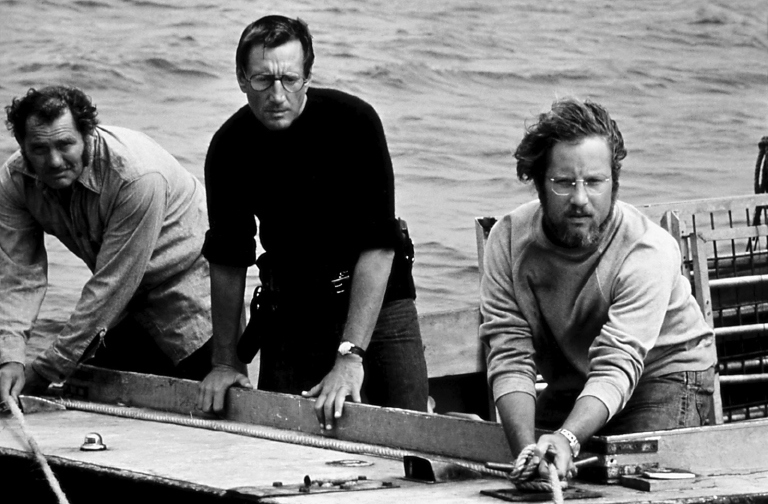Five Sources of Power
Five Sources of Power
Page 212
If you’ve ever seen the classic Steven Spielberg film Jaws, you know that it is, on the surface, the tale of a small coastal town being terrorized by a nasty, man-eating shark. But at the heart of the tale is the interaction among a group of men, each of whom bears or takes some responsibility for ridding the waters of the treacherous animal. First, there’s the town’s mayor, whose main priority is protecting the local economy. Second, there’s the town’s new chief of police, who’s thrust into the story when the first body washes ashore. Also playing a role are Matt Hooper, a young marine biologist who studies sharks, and Quint, the war-scarred local shark hunter. Over the course of the film, each man demonstrates leadership that is firmly rooted in the nature of the power he possesses.

Researchers have identified five types of power—legitimate, coercive, reward, expert, and referent (French & Raven, 1959).
- Legitimate power comes from an individual’s role or title. The president, your supervisor at work, and the coach of a team all possess legitimate power as elected or appointed leaders. In Jaws, the elected mayor of Amity Island, Larry Vaughn, has some degree of legitimate power, as does Martin Brody, the chief of police, though his power is subordinate to the mayor’s.
- Coercive power stems from a person’s ability to threaten or harm others. A harsh dictator who keeps his people under threat of violence or economic hardship holds such power, but so does a boss who threatens to dock or demote employees if they step out of line. In Jaws, the mayor—whose primary concern is protecting the town’s tourist-dependent economy—uses this kind of power to influence or override decisions made by the police chief. He hired Chief Brody, and he can fire him.
- Reward power derives from an individual’s capacity to provide rewards. For example, your boss might offer all the people in your department a paid day off if they work late three nights in a row on an important project. In the film, the mayor relies on reward power: hundreds of local fishermen set out to catch the shark in hopes of winning a monetary reward.
- Expert power comes from the information or knowledge that a leader possesses. Expert power is divided in Jaws. Faced with any other kind of homicide, Brody’s credentials as a former New York City police officer might have given him a fair amount of expert power, but as a newcomer without fishing experience, he gets little respect from the islanders. Matt Hooper, who studies sharks, fares a little bit better. But Quint, who has decades of shark-hunting experience, quickly emerges as the true expert, garnering the respect of his crewmates.
- Referent power stems from the admiration, respect, or affection that followers have for a leader. The popular kids in your high school may have had the power to influence other students’ style of dress or way of behaving simply because others admired them. In Jaws, Quint demonstrates this kind of power: when he relates his story as a survivor of the sinking of the USS Indianapolis during World War II, Brody and Hooper gain a new sense of understanding of, and admiration for, his obsession with killing sharks.
Ethics and You
Do you find certain types of power more ethical or appropriate than others? Why or why not?
It’s important to note that these types of power are not exclusive of one another; indeed, most leaders wield several, if not all, of these types of power. Quint, for example, demonstrates legitimate power, as captain of his own vessel, as well as expert and referent power. Note also that individuals gain power only if others grant it to them. That’s true to some degree even of coercive power: for example, Brody could have chosen to quit his job early on rather than acquiesce to the mayor. Thus, group members often decide to allow a particular individual to lead them.